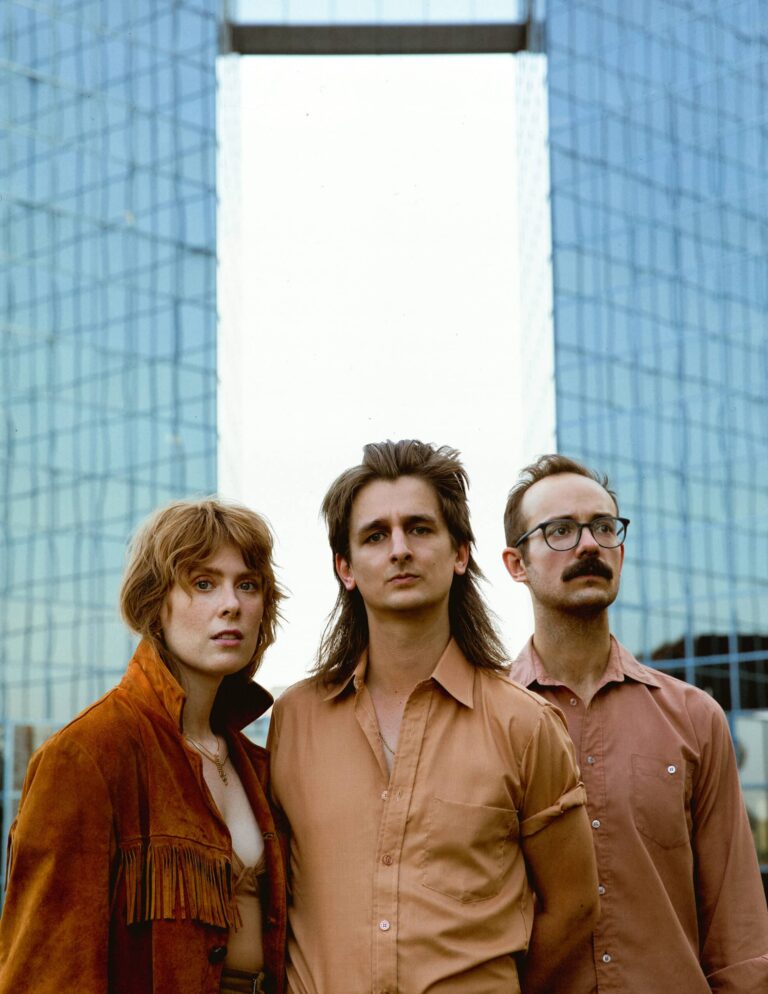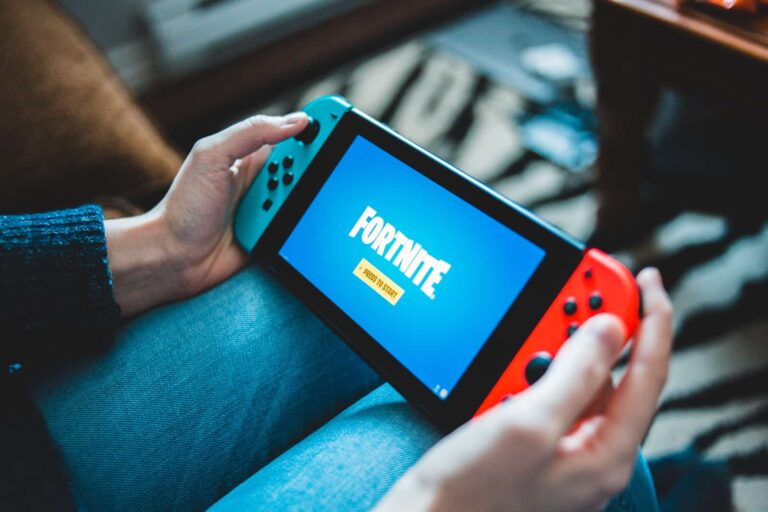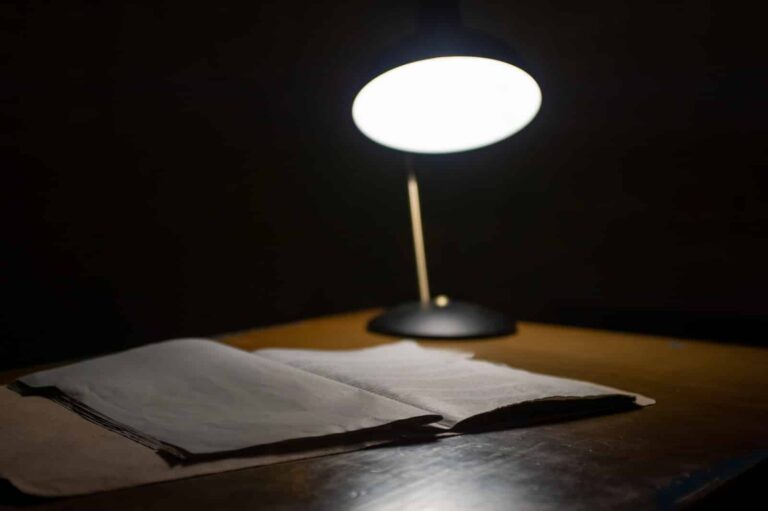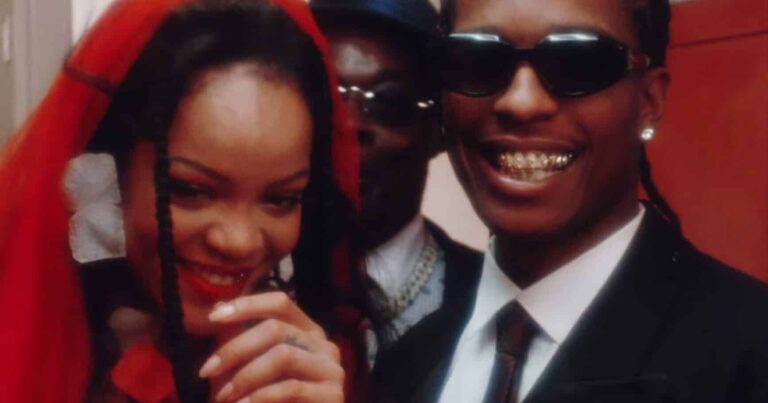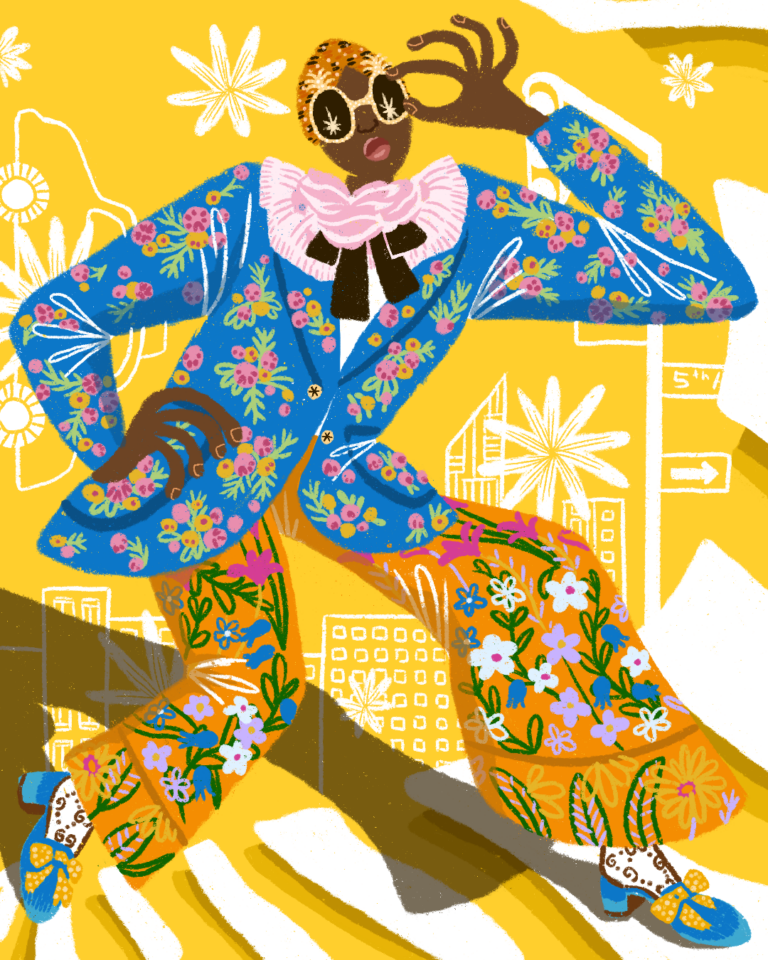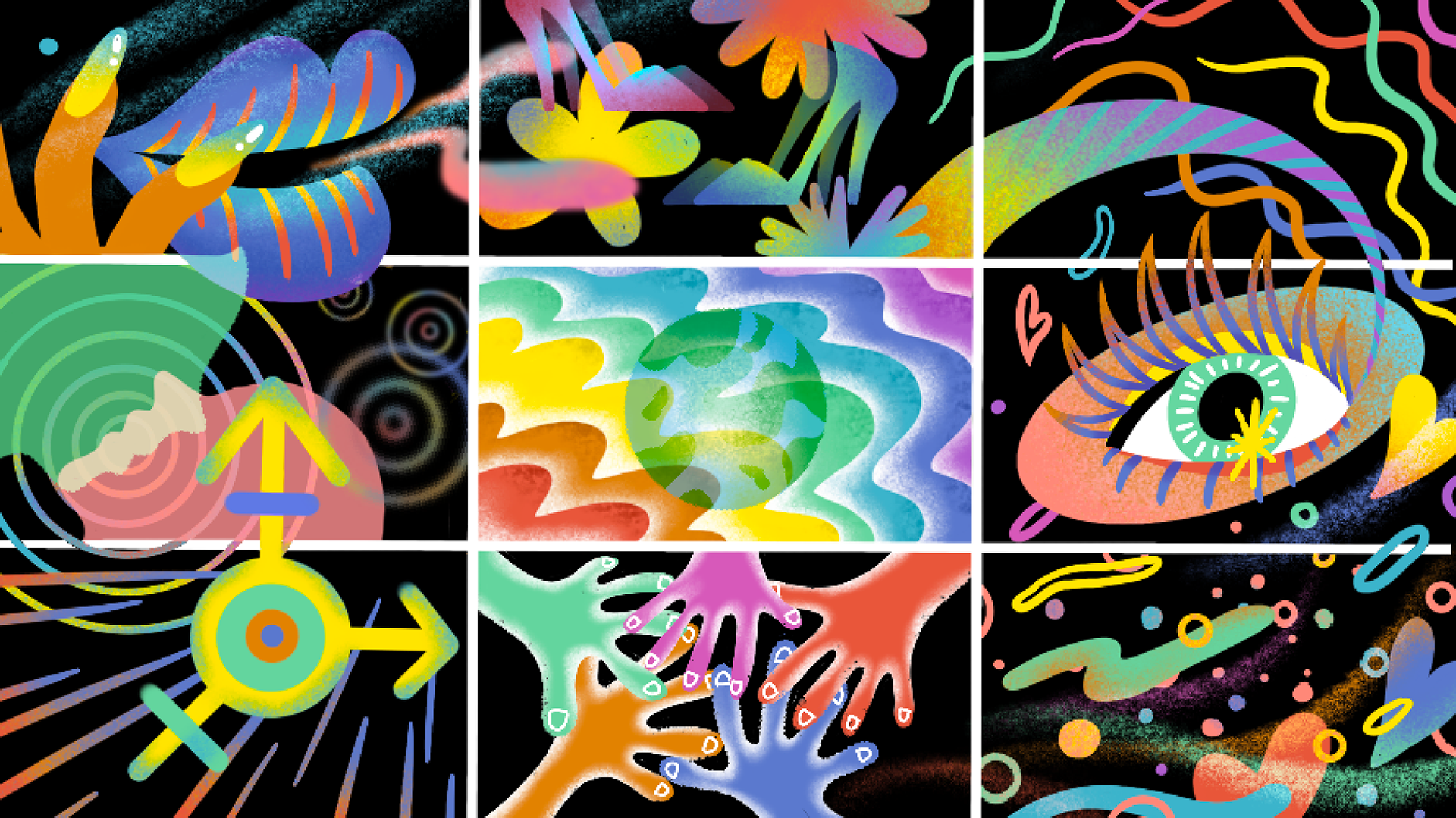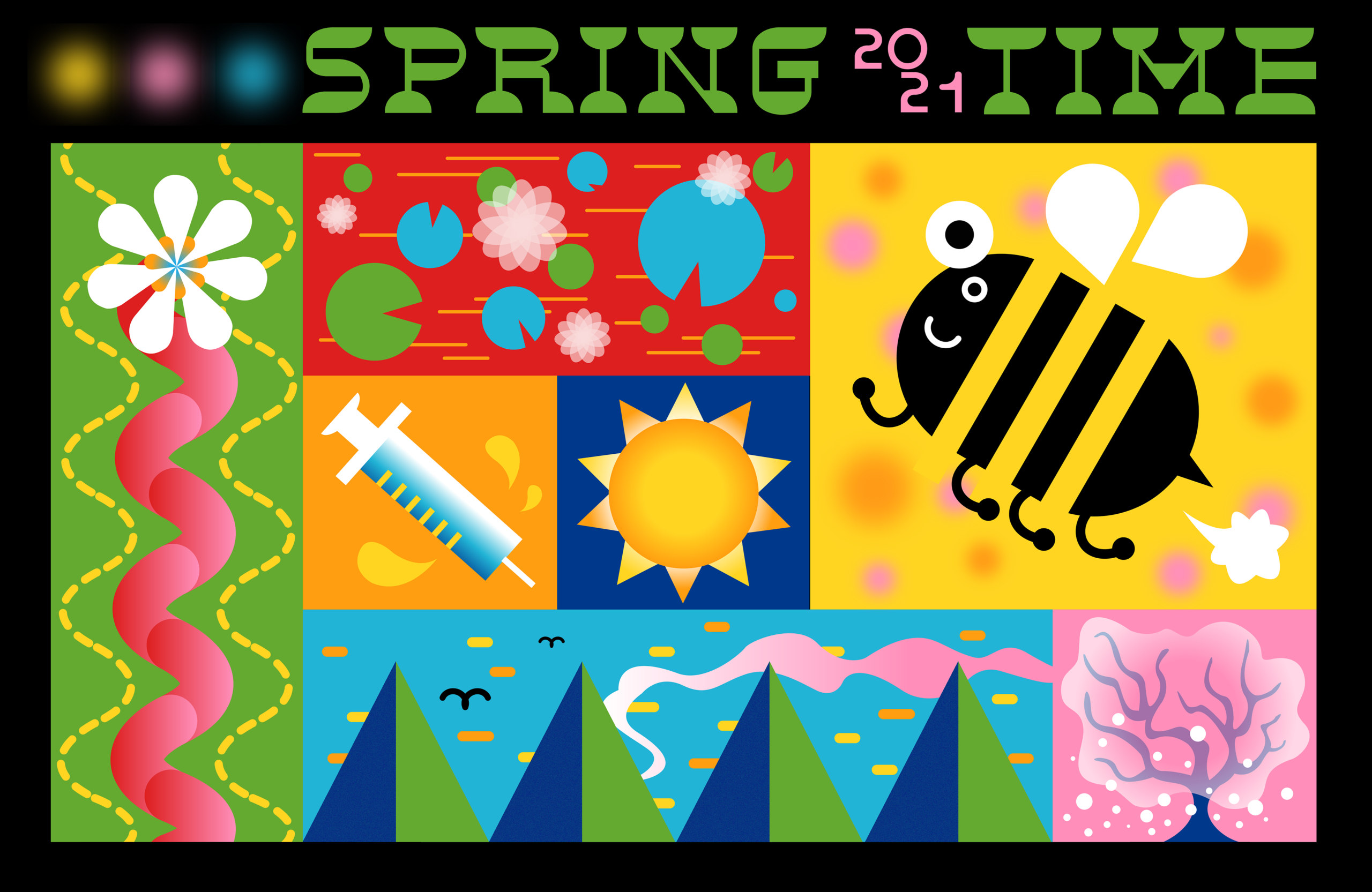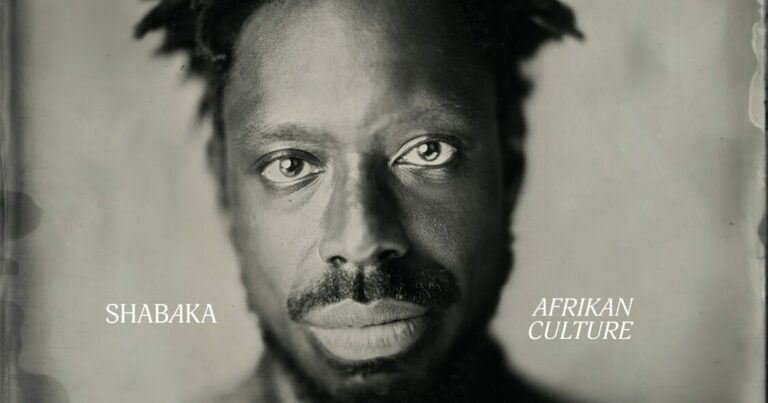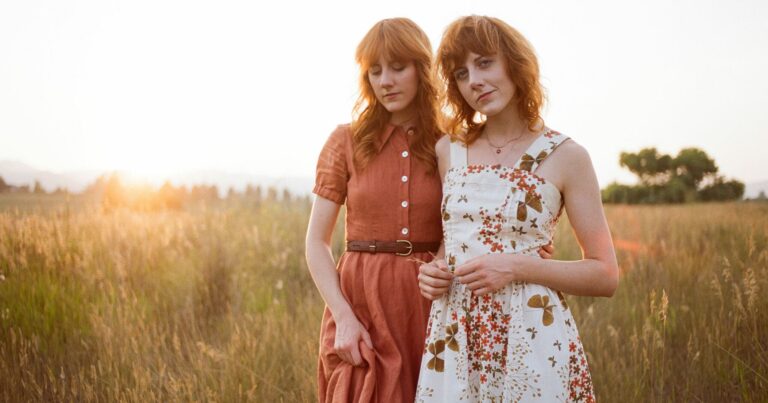Ellevator is the Hamilton, Ontario-based trio of frontwoman Nabi Sue Bersche, guitarist Tyler Bersche, and bassist/keyboardist Elliott Gwynne. After coming together as teenagers in their hometown of Guelph, the band went through various iterations and experimented with different styles before releasing their debut self-titled EP in 2018. Tomorrow, they’ll follow it up with their first full-length, The Words You Spoke Still Move Me, which was produced by former Death Cab for Cutie guitarist Chris Walla. The series of singles that have so far previewed the record highlight both sides of what it has to offer: there’s lush, soaring art-rock and intimate, quietly poignant ballads, flowing into each other in captivating and cinematic ways. Its dynamic shifts are often mirrored in the album’s lyrics, which toe the line between personal and universal as they explore the relationship between love, power, and identity, at times drawing from Bersche’s experience extricating herself from a cult. “Your sweet voice sang/ Hands lifted high/ But your songs don’t move me/ So much as the tide,” she sings on ‘Slip’, but the ones that Ellevator make land with full force.
We caught up with Ellevator for this edition of our Artist Spotlight interview series to talk about the band’s origins, their debut album, working with Chris Walla, and more.
I wanted to start by asking you about the title of the album, The Words You Spoke Still Move Me. You’ve said it’s about the power of art to provoke a strong emotional reaction, and it’s also very much in line with the emotional sincerity of the songs, which was less present when you first started out. When did you begin to notice that shift in your songwriting and the way you worked together?
Tyler Bersche: I think it’s always what we’ve wanted to do. And really, it’s always been there since we started making music together. But I think that this record was the first time we were able to really kind of eschew cultural expectations of what a rock band – we just tried to be less cool on this. We weren’t interested in coming to it with some sort of vision other than, let’s see how we can turn up the dial emotionally at every corner. I think that this record gave us the freedom to fully embrace that and be unconcerned with whether or not something was cheesy or whatever. And I think that working with Chris Walla, who produced the record, his voice really gave us the courage to do that, to try and make something as impactful as possible and have that be the only North Star for us.
Nabi Sue Bersche: I think that’s true. It’s also just more time playing together. I think it’s natural, feeling more comfortable with each other and building some good habits and structures for writing together. I’ll speak for myself that, in the first while of us being a band, I was learning how to collaborate. And however hard you can try to be super vulnerable and honest in writing lyrics in collaboration, it’s a hard thing to do in the moment, or for me, at least. So I would usually bring lyrics that were pre-written, even if they were just freeform thoughts, more like journal entries and poems and things, and then try them over music when we were together.
But over this last record, we did a lot more writing that was actually in the room together and I felt comfortable enough with everyone – even Chris, when Chris was there for some of our pre-production – to just say, “Can you just keep playing? Keep playing, loop the music, keep that energy rolling in.” And being able to actually just close my eyes and write some lyrics or sing some things as placeholders and not feel embarrassed – and for a long time, I was a little embarrassed to create, because sometimes you try something and it’s stupid or it sucks, and sometimes it’s great, and sometimes you need to push through that to get to what’s really good. And I don’t think I’m embarrassed anymore. And I don’t think you guys have been embarrassed. So I think it has a lot to do with feeling really comfortable with each other.
Do you remember when you were first moved by each other’s musical abilities?
NSB: That’s a nice question.
TB: That’s a beautiful question. [laughs] It’s a nice thing to think about.
Elliott Gwynne: Like, way back?
As far back as you want to go, yeah.
NSB: I can think for me, and it’s the same moment for both of these guys. These two were in a band together in high school. And we were on the same festival bill, I was playing solo. They have more of an emo rock background than I do, I grew up listening to more folk and some classic rock. So they were unexpected for me to like so much, but I remember watching their band play and being blown away and really thinking they were super good and liking the music. That was before I even knew them and got to meet them after that show. And we’ve been friends ever since. So for me, it was before we were even making music together.
EG: I’ve been playing music with Tyler for a long time, but a better story is Nabi. I had gotten a hold of a CD she put out as just herself of some folk songs, and I listened to it every day while I was doing my homework in school. And then I went to a concert and I knew every word, and she was on stage and said, “Hey, there’s some guy in the front row who’s singing all my songs, can you please stop? It’s messing me up.”
NSB: That was the same show.
EG: Yeah. I was blown away by Nabi’s voice, lyricism, everything, and was pretty stoked when we became a band. And Tyler’s pretty good at guitar.
NSB: Yeah, we’re still waiting for that moment with Tyler. [all laugh]
TB: Someday he’ll be moved. [Elliott laughs] I have a vague memory with Elliott – because I was playing in a rock band like in ninth grade, and Elliott, you came to a show somewhere and said that you wanted to be in the band?
NSB: [laughs] Oh!
EG: Yeah, I’m pretty sure.
TB: But I guess the first time that I heard Elliott play was in eighth grade, and we met at a music festival in our hometown. And he was playing around the campfire, is probably the first time I ever heard you play music. And the thing that is amazing about us because we’ve been doing it for so long together is that the first time I was deeply moved by your music was making it with you. Because we were both kids and figuring that out together to some degree. That was pretty magical, I think.
NSB: I think there is something to be said about making music together, too. Not to say you can’t be super moved to watch music being made, but however much I was impressed by these guys when I first saw them play, that’s different than that feeling of being impressed when we’ve been writing a song or we’re on stage together and I look around and I’m hearing the music they’re making in that moment and I’m equally impressed – but more than impressed, I guess maybe that is more moving. Because we’ve gone on that journey together. And every time we play a show, it’s like the end of the journey.
TB: I guess it does come down, though, to that one show that Elliot and Nabi mentioned, where the three of us met. [to Nabi] That’s the second time I think I’d heard you play and promptly fell in love with you. And then, you know, here we are.
What do you feel like you realized about each other’s and your own approach to music when you first started playing together? What opened up that world?
NSB: I think collaboration, for me. And in a way, not to lessen being impressed by your musical abilities or liking you guys as people, but there’s something that I was definitely attracted to seeing that you knew how to work together and had already been in their band for a while. Another funny aside is that these guys tried me out to be another singer in their band, in that same band, like a couple of weeks after we met at that show. And we wrote a song together, but then I wound up –
TB: And then she turned us down.
NSB: I think I felt like it just wasn’t the right fit, like I wasn’t supposed to be in that band. Were supposed to be in another band, but… Yeah, I didn’t have much experience with collaborating before then. I was writing songs on my own and performing them on my own for the most part, so that kind of blew my mind, to be able to make music with other people. And to know that they already had experience with each other was probably really helpful for me to get into collaborating.
Was there a specific moment where you felt like Ellevator was something special?
TB: I almost hesitate to answer this way because it’s so fucking tacky, but the first time we managed to get into a room together, I still have never felt anything as quickly come together from a musical language perspective with a group of people – to just already have some level of understanding. But for me, it was the first time in our hometown that we sold out a little bar at our own show. And for some reason, a bunch of people wanted to come see and we had these moments of really intense emotional exchange with an audience together. And being able to like crescendo and decrescendo and carry everything together, I think that that would have been the first experience for me where it was like, “This is it.”
EG: And that show was one of the first times where they were singing along.
TB: Yeah, wild.
NSB: I think I kind of feel that way too, even closer to now in our career as a band. Obviously, I believed in us the whole way, otherwise we wouldn’t be here doing what we’re doing. But I almost feel like the more our band becomes a separate entity from us – however much huddling together in a room and writing songs is powerful and moving for me, and I enjoy that process a lot – it’s been really powerful for me when we’re in a room, even if I’m not feeling great that night, even if I’m having a hard time getting in the zone of playing a show, knowing that we can do it. Which, again, probably sounds really cheesy, but knowing that I can lean on you guys and that we’ve done it before and we’ll do it again…
TB: And like you were saying, Ellevator being a separate thing from us, that it’s this bigger thing that we’re serving now.
NSB: Yeah, I’m almost trying to keep up with it. And that’s challenging in a whole new way, and it’s not just musically challenging. It’s got a business side to it too. But that is powerful to me, because it’s not really just mine.
You mentioned the first shows that you did in your hometown. Could you talk about your relationship with your hometown and how it’s changed over the years?
TB: I guess that first show, that would have been well before we started really Ellevator, it would have been different iterations of bands but with the three of us playing together. It’s changed a lot because we all moved away from our hometown to another city, a bigger city, together. And I’ve become more thankful for it, I think, because there was a part of me that growing up in a small city outside of bigger cultural musical hubs was a little bit like, “Man, if only I had grown up in like Toronto.” Maybe there’d be more opportunities, or maybe I’d be farther along. But I’m so grateful for growing up in a small city and a small musical community that was fruitful. Because I think for anyone who’s not a total prodigy at 16, it’s really important to have an insular community outside of the prying eyes of culture, kind of, to figure out what you are and what you want to say and why you want to do this. [laughs] And it served us really well to be in a band that has taken no traditional path to become where we are.
NSB: There’s a festival in our hometown called Hillside that’s on an island nearby, and I remember looking forward to that every year. And I didn’t go much when I was a kid, but when I was a teenager, it was just the most exciting thing of the year. And being able to play that as a teenager, there were opportunities to play that when you weren’t well established or anything that probably came from being local. That was definitely a highlight of growing up in Guelph. I grew up in the country outside of Guelph, so I went to high school there. But Guelph always seems like a big city to me because I grew up in the country. I moved into town when I was like 18, and it took moving into the city for me to realize that it maybe wasn’t exactly what I expected it was going to be. Not in a bad way, but to realize that it wasn’t the destination. It wasn’t the end place.
Songs like ‘Easy’, Slip’, and ‘Star’ revolve around themes of religion and identity, but they each approach it from a different angle. I feel like ‘Easy’ is more personal, ‘Star’ is more universal, while ‘Slip’ draws from an old Celtic myth about seal women. What was liberating about writing from these different perspectives?
NSB: Thank you for noticing that. I hadn’t really thought of that before, if I’m being honest. I think that it has been liberating. Again, I’ll speak for myself, lyrically, with that subject matter. They’re not necessarily all focused on religion, but there are pieces from each of those songs that are definitely tied into my own experiences and things that I’m trying to grow out of and get away from. I think that the different approaches allowed me to process those feelings in different ways, which is what I’ve basically been trying to do the last few years of my life, is grow. But when it comes to religion, there has been a time for anger for me in trying to get away from it. But there’s also been a time to really appreciate where I’ve come from and to honour that in a way, and to know that I wouldn’t be who I am now without my past. I just have a lot of different feelings on that subject matter, and I think that there’s probably a deeper well than I’ve tapped into.
‘Slip’, about the seal women, isn’t directly about me, but that definitely channels some of those experiences and channels my emotion. It’s a more dramatized, heightened version of storytelling than if I were telling my own story. Being able to do that in a song is pretty powerful.
Often in writing lyrics, I will write a full song, like a full set of lyrics, and not really realize that it has anything to do with me. But it usually does, because it’s coming from my brain and my experience. It’s almost like dreams, which I think can be powerful too. How your brain is piecing things together while you’re sleeping, and sometimes you wake up and it makes you think about something you didn’t realize was something you needed to focus on or something that you were worried about that you didn’t know. Sometimes writing songs is like that for me. And sometimes it takes playing them before all of a sudden it clicks, like, Oh my goodness, this is about this. And sometimes it takes talking to someone else and hearing about it means to them for me to realize that it means that for me, too.
Since you said making the album was a more open and collaborative process, were there moments where you had those realizations because of others in the room?
NSB: All the time, and I think primarily from Tyler. Tyler has written some of the lyrics on the album as well, and he’s a wonderful writer. And sometimes, to an annoying degree, I will pester him with basically wanting him to listen to everything I’ve written. And if we’re home together, there’s a whole lot of like, “What do you think of this? What do you think of this?” He has a lot of really good insight in sort of filtering those thoughts that I might put out there but that are sometimes a little chaotic.
TB: If you’re looking for a specific instance, one that comes to mind is in the song ‘Charlie IO’. Nabi was just playing that chorus and was just singing “Charlie IO” as a placeholder because she was trying to find the melody. And then you said…
NSB: [singing] Charlie Iowaska.
TB: And I kind of stopped her at that point and was like, “Hey, who is that?” Because that’s like a great nickname for somebody, that’s a great main character. How does somebody come into that nickname? And that’s kind of how the song grew, was just figuring out who Charlie is to us, who in our lives is Charlie.
NSB: And that was all of us giving ideas at that point.
What did you learn from working with Chris Walla?
NSB: There’s a freedom in the way that he produces and comes up with ideas. It’s not that he lacks structure, but he is very free-flowing, and I found that very inspiring when we were working with him. We didn’t run out of time, but it somehow felt like we weren’t on a schedule. And that was the same way that his ideas worked. I didn’t really know what he was going to suggest next, but it didn’t make me feel too on my toes and impulsive. I knew he was going to get the job done and I knew it was going to be great. There was so much trust there from the beginning. But he was also very willing to experiment, and it worked.
EG: A lot of records kind of slog along and drag along, and ours didn’t feel like it did that. There was no sad “Let’s do another.” It’s like, “Let’s do something different.” It didn’t get boring and it was always exciting. And I think that’s 100% Chris’ influence on us as a band, on the process. You know, he had well-timed food breaks. It just kept everything going at a very positive and successful rate.
TB: Walla said to me to never trust a producer who can’t cook, because it’s the same skill set, essentially. But for me, the thing that kept it so exciting was that he’s so good at really committing to the idea, that if what we’re doing right now isn’t exciting – whether that’s doing a big full take of a song or finding some sort of weird fucking sound that’s going to be buried – whatever it is, if this isn’t exciting, stop. Or change something to make it interesting and exciting for everybody. Which I think is just a wonderful compass for all of us to have.
This interview has been edited and condensed for clarity and length.
Ellevator’s The Words You Spoke Still Move Me is out May 6 via Arts & Crafts.
